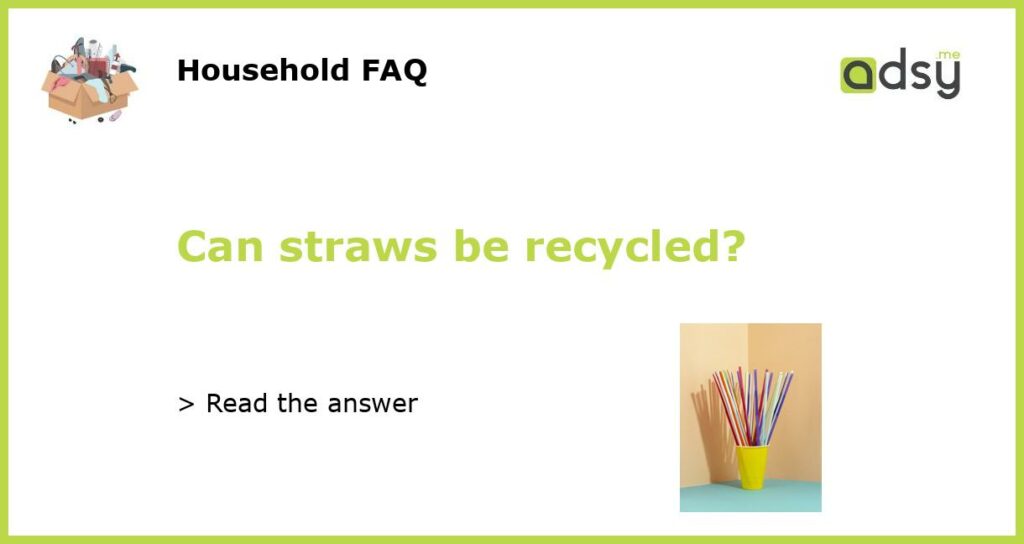Straws can be recycled, but it depends on the type of straw
When it comes to the question of whether straws can be recycled, the answer is both yes and no. The recyclability of straws depends on the type of material from which they are made.
Plastic straws are not easily recyclable
Plastic straws, which are the most commonly used type, are typically made from polypropylene or polystyrene. Unfortunately, these materials are not easily recyclable.
The problem with plastic straws is that they are too small and lightweight to be sorted properly in the recycling process. These straws often fall through the cracks of sorting machinery and end up in landfill or, even worse, in the ocean.
Due to their low recyclability and the enormous amount of plastic straws that are used and disposed of every day, they have become a major environmental issue. According to estimates, around 500 million plastic straws are used and discarded daily in the United States alone.
Paper straws are more environmentally friendly and recyclable
While plastic straws present significant challenges for recycling, there is a more eco-friendly alternative available – paper straws.
Paper straws are made from sustainable, biodegradable materials and are generally more recyclable than plastic straws. However, they may still need to be sorted separately from regular paper waste due to the potential presence of food residue.
It is worth noting that not all paper straws are created equal. Some manufacturers apply a waterproof coating to their paper straws, which can make them more difficult to recycle. Therefore, it is important to choose paper straws that are specifically labeled as recyclable.
Other alternatives can reduce the need for recycling
While recycling is an important part of reducing waste and minimizing environmental impact, finding alternatives to single-use straws can be even more impactful.
One of the most popular alternatives to plastic straws is reusable stainless steel straws. These straws can be used multiple times and are easy to clean, making them a sustainable and practical solution.
Other options include bamboo straws, glass straws, and even edible straws made from materials like pasta or seaweed. These alternatives not only reduce the demand for disposable straws but also offer unique and fun experiences for consumers.
The importance of proper waste management and education
While some straws can be recycled or replaced with more sustainable alternatives, the key to reducing their environmental impact lies in proper waste management and education.
Improving recycling infrastructure and implementing effective recycling programs can help ensure that straws, and other types of plastic waste, are properly processed and diverted from landfills. At the same time, educating consumers about the importance of reducing single-use plastics and choosing eco-friendly alternatives is crucial.
By working together, government bodies, businesses, and individuals can make a significant difference in minimizing the environmental impact of straws and other plastic products. Whether it be recycling, using reusable options, or simply opting for no straw at all, every action counts in the fight against plastic pollution.






